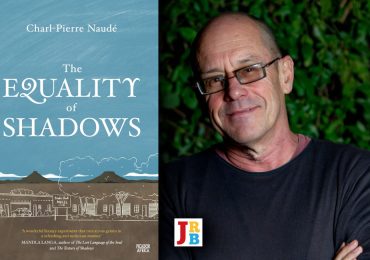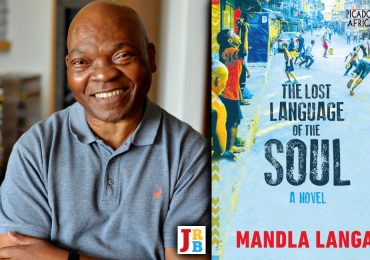
Pan Macmillan SA is proud to present Bare Ground, the debut novel by acclaimed non-fiction writer Peter Harris.
Harris’s 2009 book In a Different Time: The Inside Story of the Delmas Four was awarded the prestigious Sunday Times Alan Paton award as well as the Booksellers’ Choice Award. He is also the author of the bestselling Birth: The Conspiracy to Stop the ’94 Election.
Esteemed author Mandla Langa has nothing but praise for the book:
Bare Ground is about the transient nature of dreams, but it is also an unyielding and engrossing critique of our new society, which grapples with the scourges of corruption and greed. The novel will lead to society’s continuing appraisal of the policies of government in the face of rapacity reminiscent of the 1886 Gold Rush.
Read an excerpt:
ONE
It wasn’t the first funeral Musa Madondo had attended that turned out to be an exercise in hypocrisy. Now, when the man was dead, speaker after speaker solemnly declared that he was a great man – well, almost. ‘A man who lived his life with integrity and honour,’ the first speaker declared. ‘A life of sacrifice and commitment,’ another intoned. Yet, when the man had been alive, he had felt alone, bereft of friends and company, or so he had told Musa. Why should it take a man to die for him to achieve recognition? What was it that compelled the speakers to claim him as theirs now, when they had never done so in life?
Too late, thought Musa. The man was dead and incapable of listening now. And actually, although they might never have expressed this to his face, he knew that some of the eulogisers had actively disliked him. They spoke of good times past, when they were young and immortal, before life had stamped its heavy boots on their innocence and dreams.
Each eulogy stressed the special role the speaker had played in the deceased’s life, how close they had been, and how much the man would be missed; each intimating a friendship and bond no other could claim. The pallbearers, some in dark suits, were a history lesson on their own: two government ministers, a captain of industry, a director general, two comrades in full military uniform from a time gone by, a hero of the struggle now in her seventies, and an academic whose face was familiar but whose name escaped Musa. The priest summed it up, really, quoting from the Book of Revelations. ‘And God shall wipe away all tears from their eyes; and there shall be no more death, neither sorrow nor crying, neither shall there be any more pain: for the former things are passed away … He that overcometh shall inherit all things; and I will be his God, and he shall be my son.’
Musa looked at the packed pews, seeing men and women nodding wisely, taking comfort from the words. Then the priest suddenly changing tack. ‘But the fearful and the unbelieving, and the abominable, and murderers, and whoremongers, and sorcerers, and idolaters, and all liars shall have their part in the lake which burneth with fire and brimstone; which is the second death.’ The mourners were no longer nodding. Lips were pursed; some looked straight ahead. He heard someone whisper, ‘That’s a bit rough,’ and he smiled to himself. This priest knows his congregation, he thought. A lone voice in a godless place.
Afterwards, the mourners gathered on the circular tarmac outside the Braamfontein Crematorium. Many of the gravestones in the cemetery behind were dilapidated and forlorn. Sunglasses on, people exchanged sad pleasantries, kisses on cheeks, hands on shoulders, tissues touched to eyes, meaningful hugs. ‘He was a good man.’ None mentioned how he had died. It probably didn’t help that the cause of death remained unclear, as did the circumstances of his passing. There were those who claimed this was no normal accident; that things were found in the car that told their own story; that he’d had a recent brush with the law. There was also talk of suicide, of a man tormented, driven by fear and isolation. A man at the end of his rope.
Personally, Musa had ruled out suicide. But he hadn’t ruled out murder.





